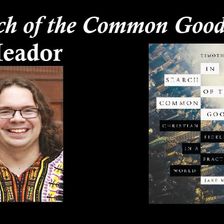Q&A#138 The Troubling Absence of Consent in OT Law and Narrative

Today's question: "The issue of consent has been much discussed in the wake of, among other things, the #MeToo movement, and I was wondering how we can relate that to the types of marriage practices that we see in the Bible, where consent really is not at the forefront, if relevant at all. What are we to make of concubinage, war brides, bride kidnapping (in Judges), rape laws (where unbetrothed virgins may be given in marriage to their rapists) or just the fact that Mosaic law seems to place a daughter’s choice of spouse entirely in her father’s hands? Many have highlighted that what David did to Bathsheba was most likely rape, but do we also change the way we speak about, say, Abraham and Hagar? As a concubine/slave, was Hagar in a position to consent? How do we speak honestly and forcefully about the evil of forced marriage and the importance of consent, considering that the Bible does not seem to condemn these things in a straightforward way? The Church has historically held that mutual consent is necessary for marriage, but was that arrived at independent of the biblical witness or in proper extrapolation from it? I would love to hear your thoughts on this issue."
I make the beginning of an answer to a question that needs a far fuller and more searching treatment. I explore the story of David and Bathsheba in more depth here: https://theopolisinstitute.com/the-reopened-wounds-of-jacob/.
My blog for my podcasts and videos is found here: https://adversariapodcast.com/. You can see transcripts of my videos here: https://adversariapodcast.com/list-of-videos-and-podcasts/.
If you have any questions, you can leave them on my Curious Cat account: https://curiouscat.me/zugzwanged.
If you have enjoyed these talks, please tell your friends and consider supporting me on Patreon: https://www.patreon.com/zugzwanged. You can also support me using my PayPal account: https://bit.ly/2RLaUcB.
The audio of all of my videos is available on my Soundcloud account: https://soundcloud.com/alastairadversaria. You can also listen to the audio of these episodes on iTunes: https://itunes.apple.com/gb/podcast/alastairs-adversaria/id1416351035?mt=2.
More From Alastair Roberts






More on OpenTheo















